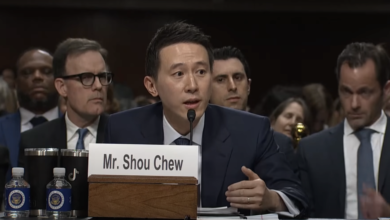In June, March Forward!, an organization of veterans and active-duty U.S. service members, went on a speaking tour in scores of working-class high schools throughout southern California.
The experience in each high school was the same: the vast majority of students had been approached by a military recruiter. But not only that; all had completely warped, distorted and wholly inaccurate ideas of what it meant to be in the U.S. military. They were promised job training that did not exist, told fanciful stories of military service being one long vacation, and even told that they would never have to go to Afghanistan or risk being killed or wounded.
If those students made it to basic training, they would quickly become aware of the mantra every new recruit knows once they arrive: “My recruiter lied to me.”
Another thing the students did not know is that there was a reason they had all been targeted by military recruiters: they were poor.
In fact, it is official doctrine for recruiters to target poor communities, which is why they are a permanent fixture in these schools.
Targeting poor and working-class youth
Students are targeted at extremely young ages. Recruiters get students to sign “Delayed Entry” contracts at age 17, tricking them into thinking they are in a legally binding contract. But recruitment starts much earlier, as recruiters pay heavy attention to 15- and 16-year-olds. Military-pathway programs like JROTC recruit students in middle school. Programs like “Young Marines” even recruit and begin indoctrinating children as young as seven.
It is no mystery why young people are a top target for military recruitment. Official youth unemployment is a staggering 22 percent. That number is far higher for youth of color. For those about to graduate high school, looking at a job market where so few find work, and jobs with decent pay, what options are there?
Evidence of an “economic draft” became clear with the economic crisis in 2008. Prior to the collapse, a major story in the news was that the U.S. military was experiencing the greatest recruiting shortfall in its history. Once the crisis hit, there was a new story just a couple months afterward: that military recruitment had reached the highest levels yet.
For youth who dream of going to college, that option is increasingly becoming impossible. College tuition and debt are soaring, schools are reducing enrollment, and the scholarships and grants that would give poor youth the ability to pay for school are being ripped away.
As young people leave high school, questions about life and survival come to the fore. How will I pay rent? How will I eat? How can I pursue my dreams? How can I afford to go to the doctor? How can I escape crime or gang violence in my community?
So in comes the military recruiter, with answers to all the questions. High-skill job training and value in the job market; a 4-year full college scholarship; free health care and housing; a life serving some greater good.
Statistics reveal blatant lies
Except, none of those things come true, if they make it out without dying or losing limbs. Most job training in the military is useless and doesn’t translate to the civilian world. Around 80 percent of veterans do not find work related to their military training. In fact, military service makes you less likely to get hired in the job market. Iraq and Afghanistan veterans have an unemployment rate more than triple the national average.
The new GI Bill is already being gutted, so veterans are finding themselves losing the college benefits they were promised. Furthermore, the majority of veterans drop out of college due to psychological stress from military service.
As for health care benefits, the quality of care is revealed by the suicide epidemic—so far in 2012, an active-duty service member has committed suicide every single day. Young GIs quickly learn about the so-called “greater good” they are a part of when they find themselves serving in a criminal war of occupation that the vast majority of Afghans and people in the United States oppose.
The real fight is at home
U.S. wars abroad benefit nobody except a tiny clique of shareholders and CEOs, and the political functionaries that serve them. As they swallow up independent countries and their resources, they sometimes require troops on the ground to secure their new stolen territory. But the CEOs of ExxonMobil and Halliburton are not going to send their own children to fight—they will send them to Ivy League schools.
They need an army of soldiers willing to put everything on the line for the promise of a better life. So they send recruiters to tell lies to the most vulnerable and the most at-risk. They hold true to the old saying “the wars for the rich are fought with the blood of the poor.”
Military service only leads youth to an early grave, or to a life situation more difficult than when they joined. Their fight is not in Afghanistan but against the banks and corporations that destroyed their communities and the economy.





